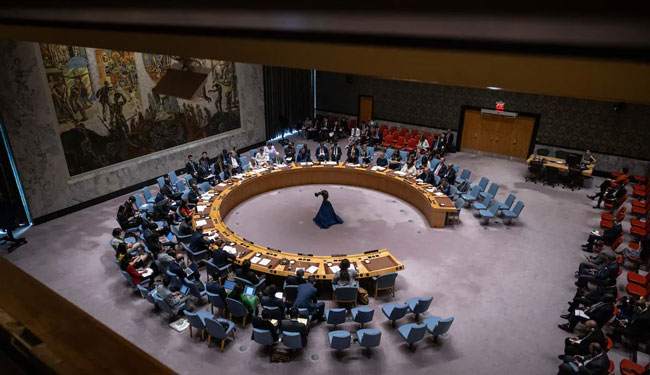Desk:On April 22, a brutal terrorist attack in the Pahalgam area of Anantnag district in Jammu & Kashmir claimed 26 lives, including 25 Indian and one Nepali tourist. The attack occurred in broad daylight in the Baisaran Valley when 5–6 terrorists opened indiscriminate fire. The Resistance Front (TRF), an affiliate of the Pakistan-based banned outfit Lashkar-e-Taiba, has claimed responsibility for the attack.
UN Appeals for Restraint and Dialogue
UN Secretary-General António Guterres and spokesperson Stéphane Dujarric strongly condemned the attack. Dujarric urged both India and Pakistan to exercise maximum restraint and avoid any actions that could further escalate the situation. He emphasized that all disputes between the two nations should be resolved through meaningful and peaceful dialogue.
India’s Strong Response
In response to the attack, the Cabinet Committee on Security (CCS), chaired by Prime Minister Narendra Modi, convened a high-level meeting and announced several major decisions:
- Suspension of the Indus Water Treaty: India has suspended the 1960 World Bank-brokered Indus Waters Treaty, stating it will remain suspended until Pakistan puts a complete stop to cross-border terrorism.
- Closure of Attari-Wagah Border: The Integrated Check Post at the Attari-Wagah border has been shut down with immediate effect.
- Visa Suspension for Pakistani Nationals: All visa services for Pakistani citizens have been suspended. Pakistani nationals currently in India have been asked to leave by April 27; those on medical visas have until April 29.
- Diplomatic Downgrade: India has recalled its defense, naval, and air advisors from its High Commission in Islamabad. Similarly, Pakistan’s military advisors in New Delhi have been declared ‘persona non grata’ and asked to leave within seven days. Both countries have agreed to reduce their embassy staff strength from 55 to 30.
- Tighter Border Security: The Border Security Force (BSF) has suspended ceremonial handshakes during retreat ceremonies at Attari, Hussainiwala, and Sadki, and has decided to keep border gates shut.
Speaking at a rally in Bihar, Prime Minister Modi said, “We will hunt down and punish terrorists and their supporters, no matter where they hide. India’s resolve against terrorism is unshakable.” Defense Minister Rajnath Singh added, “Those behind this heinous attack will face a fitting response.”
Pakistan’s Reaction
Labeling India’s actions as “acts of war,” Pakistan reacted sharply. Prime Minister Shehbaz Sharif’s office warned that any attempt to stop or divert water under the Indus Waters Treaty would be considered an act of war. In retaliation, Pakistan has:
- Cancelled all visas issued to Indian citizens
- Closed its airspace to Indian flights
- Suspended all trade activities with India
- Announced the suspension of the 1972 Simla Agreement, which had established the Line of Control (LoC) between the two countries.
Pakistan’s Defense Minister called the Pahalgam incident a “false flag operation” and accused India of blaming Pakistan without evidence. However, Pakistan did condemn the attack and expressed condolences for the victims.
Global Condemnation and Support for India
The international community, including the US, France, UK, Italy, Russia, Ukraine, Israel, Iran, and the UAE, condemned the attack. US President Donald Trump wrote on X (formerly Twitter): “America stands firmly with India against terrorism.” French President Emmanuel Macron described the attack as “heinous,” and British Prime Minister Keir Starmer called it “horrific.”
Domestic and Political Reactions
J&K’s former Chief Minister Omar Abdullah described the incident as “the deadliest civilian attack in recent years,” urging the public not to see all Kashmiris as adversaries. Congress leader Rahul Gandhi cut short his US trip to return to Delhi. Both PM Modi and Finance Minister Nirmala Sitharaman also shortened their foreign visits.
Prominent Muslim institutions such as Darul Uloom Deoband and Imam Qari Syed Fazlul Mannan Rahmani of Lucknow’s Tile Wali Masjid condemned the attack. Darul Uloom’s Vice-Chancellor Mufti Abul Qasim Nomani stated, “Targeting innocent civilians is against the teachings of Islam.”
Investigation and Security Measures
J&K Police, in coordination with CRPF and the National Investigation Agency (NIA), has started recording witness statements and launched a large-scale manhunt. The Baisaran meadow has been closed to tourists, and search operations are underway in nearby regions. Border security has been ramped up, especially along the international border in Rajasthan’s Sri Ganganagar district.




